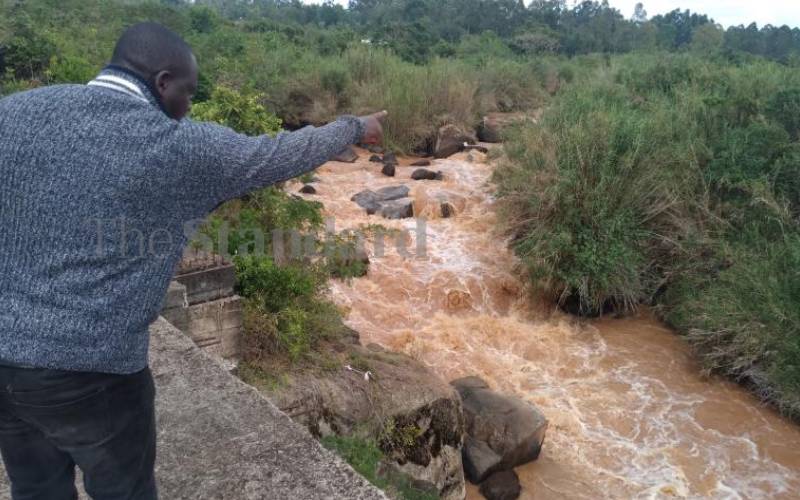×
The Standard e-Paper
Fearless, Trusted News

Revelations of how rogues have turned River Yala into a dumping site for bodies now sends shivers down the spines of residents. [Collins Oduor, Standard]
It is important for the police service to improve the way its officers investigate serious crimes.